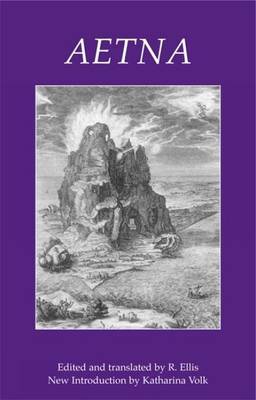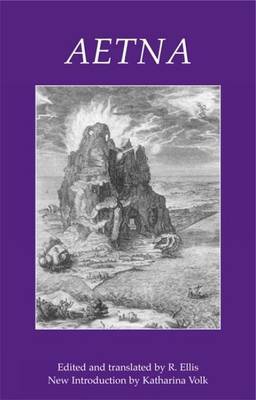
Bedankt voor het vertrouwen het afgelopen jaar! Om jou te bedanken bieden we GRATIS verzending (in België) aan op alles gedurende de hele maand januari.
- Afhalen na 1 uur in een winkel met voorraad
- In januari gratis thuislevering in België
- Ruim aanbod met 7 miljoen producten
Bedankt voor het vertrouwen het afgelopen jaar! Om jou te bedanken bieden we GRATIS verzending (in België) aan op alles gedurende de hele maand januari.
- Afhalen na 1 uur in een winkel met voorraad
- In januari gratis thuislevering in België
- Ruim aanbod met 7 miljoen producten
Omschrijving
The pseudo-Virgilian Aetna poem has fascinated textual critics for centuries on account of its badly corrupted state. But it is fascinating for its content as well. It appears to date from the first half of the first century AD sometime prior to 79, for it describes Vesuvius as extinct. The highly original account of a volcano with scientific, if eccentric, views of volcanic activity, is enlivened by vivid imagery and digressions such as a section in praise of physical science and the tale of two brothers who rescued their parents from an eruption. A vigorous and enthusiastic poem, it repays further study within the didactic tradition. Robinson Ellis, according to The Times the 'greatest English Latinist' of his age, worked on the poem for decades, and his 1901 edition, which includes a translation and full commentary, constitutes a significant contribution to the study of the poem. His work remains of interest today, both to scholars working on the poem and to historians of classical scholarship.In her new introduction to this reissue of the complete Latin text and translation of the poem with Ellis's commentary, Katharina Volk discusses Ellis's achievement in the context of his career and as part of the history of critical engagement with the Aetna. She also provides an overview of work on the poem since Ellis's edition, and a bibliography.
Specificaties
Betrokkenen
- Vertaler(s):
- Uitgeverij:
Inhoud
- Aantal bladzijden:
- 388
- Taal:
- Engels
- Reeks:
Eigenschappen
- Productcode (EAN):
- 9781904675389
- Verschijningsdatum:
- 17/10/2008
- Uitvoering:
- Paperback
- Formaat:
- Trade paperback (VS)
- Afmetingen:
- 137 mm x 211 mm
- Gewicht:
- 498 g

Alleen bij Standaard Boekhandel
+ 203 punten op je klantenkaart van Standaard Boekhandel
Beoordelingen
We publiceren alleen reviews die voldoen aan de voorwaarden voor reviews. Bekijk onze voorwaarden voor reviews.








